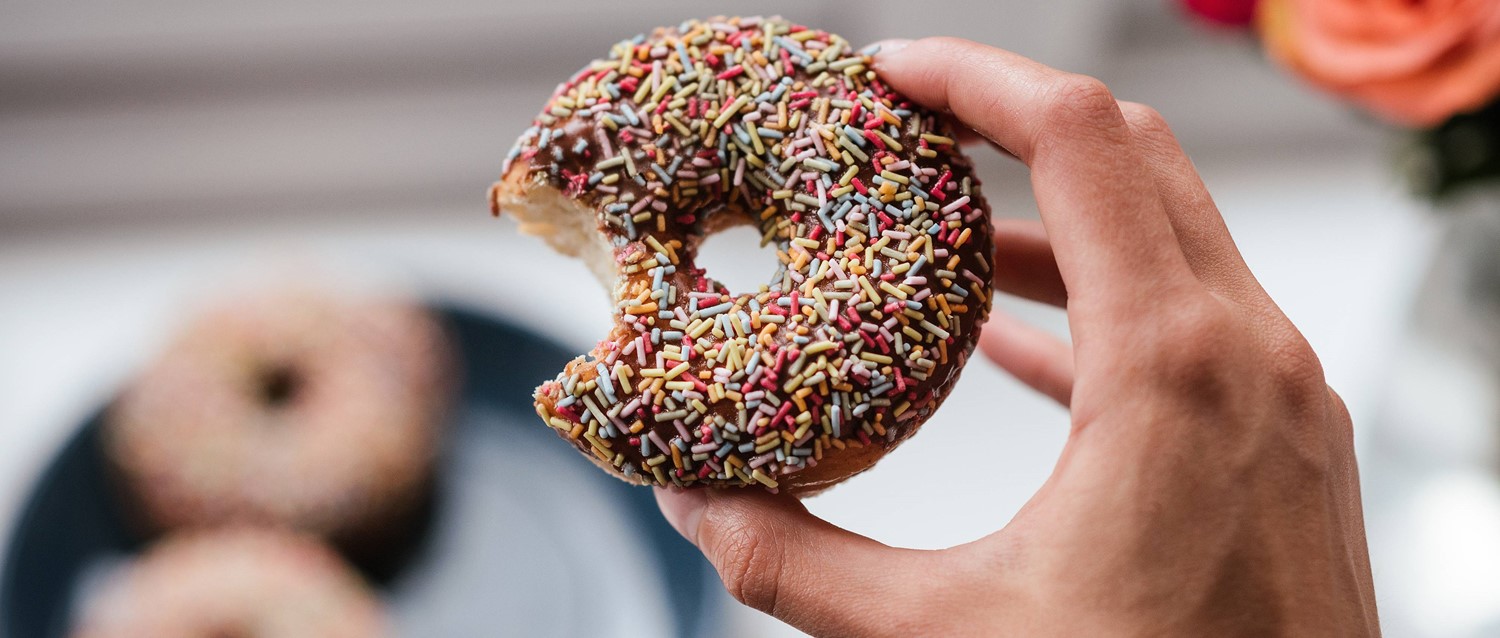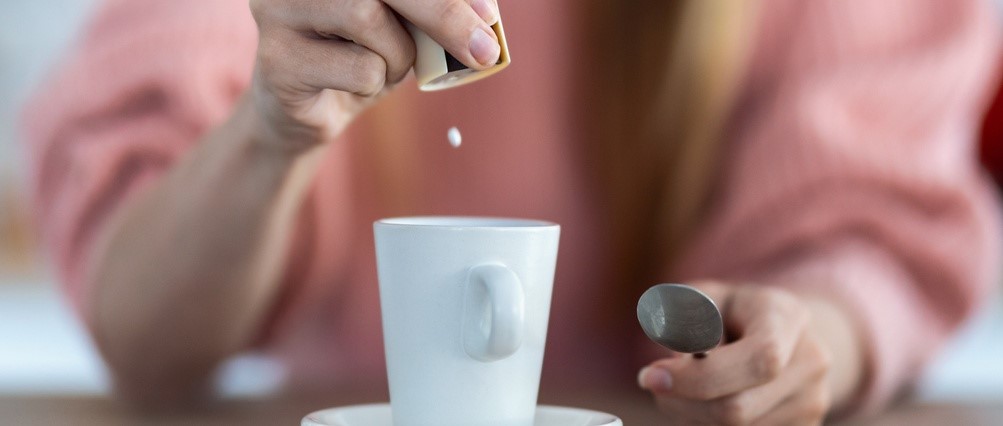
How to stop binge eating
Peer reviewed by Dr Sarah Jarvis MBE, FRCGPLast updated by Sarah GrahamLast updated 28 Dec 2018
Meets Patient’s editorial guidelines
- DownloadDownload
- Share
- Language
- Discussion
- Audio Version
It's supposed to be the most wonderful time of the year. But if you struggle with your weight, eating, and body image, the weeks around Christmas and the New Year can be an absolute minefield.
In this article:
Video picks for Healthy eating
From the cultural imperative to stuff our faces throughout December, to our collective obsession with the New Year diet and gym membership, the whole festive period can very easily turn into one long, drawn-out cycle of bingeing and restriction. Yet most of us know that it doesn't really work for weight loss, at least not in any kind of sustainable way.
"I can completely understand why people fall off track in January; those New Year dieting decisions are usually quite rash, because we make them when we're full of chocolate and wine," says behavioural change specialist Shahroo Izadi, who says she sees more referrals in the third week of January than at any other time of year.
Continue reading below
A vicious circle
"I used to diet a lot, so I would lose massive amounts of weight, but I would never keep it up. I was always doing it from a harsh and punitive place, reinforcing this idea that I was bad and weak," she says. "Those sorts of conversations I was having with myself - first about having gained weight, and then about needing to lose it as quickly as possible, and placing so much of my life on hold until I did - were actually increasing the likelihood of me overeating because that's such a horrible mental state to be in."
However, it was Shahroo's background working with drug and alcohol addictions that eventually helped her lose eight stone, and keep it off. At first glance, it might sound just as extreme an approach - after all, we can't abstain from food in the way you might from alcohol or drugs. But is there something in specialist anti-addiction techniques that could help us develop a healthier and more balanced relationship with food?
Overeaters Anonymous
Back to contents"I had long suspected that some of the tools that work in addiction treatment would also work with weight loss, because they're just basic behavioural change tools; they're about increasing your self-esteem and self-belief," Shahroo explains.
"As part of my job, I went to quite a few 12-step peer-to-peer meetings like Alcoholics Anonymous and Narcotics Anonymous - and then I heard about Overeaters Anonymous," she adds. "I went to an Overeaters Anonymous meeting, and what I saw was people who were following a framework around support, connection, self-awareness, and building resilience; looking at their resentments and the things that were triggering those behaviours in the first place, whilst also not being able to be fully abstinent from their drug of choice: food."
Stress, anxiety and boredom are typical triggers that have us all reaching for one bad habit or another - whether it's alcohol, drugs, nail biting, or binge eating. So while there are obvious differences between overeating and substance abuse or addiction, the emotional purpose it serves may well be similar.
"What usually happens [when people binge] is that the individual is in a dysthymic state, feeling anxious, unhappy or lonely," explains Dr Alan Wear, an eating disorder specialist from The Priory. "In this state, they often have thoughts which promote behaviours that make them feel better in a short-term way."
Continue reading below
Break the cycle
Back to contentsSo how do you break the cycle? "I think first and foremost, it's about not concentrating on what's wrong with your behaviour, but looking at what's right with it and what purpose it's serving in your life. A lot of the time it's about avoidance - we eat, or abuse substances, to avoid uncomfortable thoughts, memories, and feelings," says Shahroo. "When we talk about how a behaviour is serving us, and gain that self-awareness, we're better placed to replace those habits with healthier ones."
Of course, there's still a level of discipline involved, and recognising the excuses you use to self-sabotage.
"The starting point is accepting that you are in control of your eating; it's not food controlling you," says Dr Wear. "Understanding why you binge is the next step. What is making you unhappy? Where are the stressors in your life? Some analysis of this may help, along with avoiding situations where you are likely to binge," he adds.
If you mainly overeat when you're stressed, Shahroo says: "diversify your coping mechanisms for stress before you decide to change your life profoundly in terms of food and exercise. Otherwise, you're going to be white knuckling the process and left with this sort of void."
For her, one of the most effective coping mechanisms was taking up karaoke - but it could be something completely different that works for you. "Sunday evenings were always really hard for me because I'd get bored and overeat," she explains. "One week I just decided to go to a karaoke booth by myself, get a coffee, and sing for a couple of hours. Since then, whenever I have a desire to binge, or I'm triggered by something, I book myself a karaoke booth.
The key, Shahroo adds, is about being kinder to yourself: "I'll tell myself, 'you can eat whatever you like; just first go and have a sing, and see if you still want to afterwards'. To this day, I've never wanted to. Singing's a really mindful activity - you're so engrossed in one thing that nothing else is coming in, and so the craving passes," she says.
"I'm not a good singer, by the way," she adds. "It's really important to find things that are purely for joy, with no outcome, and that reinforce your self-worth. I try to do tiny acts of self-care each day, just to acknowledge that I have a body worth taking care of and I have a brain worth taking care of. That leaks into all your little habits and really helps you to champion yourself."
Patient picks for Healthy eating

Diet and nutrition
Are artificial sweeteners really that bad for us?
Sweeteners are often seen as a healthy alternative to sugar, which can contribute to many diseases and conditions such as obesity, type 2 diabetes, and heart disease. But in the last few years, research has suggested artificial sweeteners might not be the better option - and may be linked to an increased cancer risk.
by Lydia Smith

Diet and nutrition
Why too much sugar is bad for children
It’s no secret that sugar isn’t good for us and contributes to a range of health problems, from type 2 diabetes to heart disease. Despite this, research shows children eat way too much of the sweet stuff - and it’s putting their health at risk1.
by Lydia Smith
Continue reading below
Article history
The information on this page is peer reviewed by qualified clinicians.
28 Dec 2018 | Latest version

Ask, share, connect.
Browse discussions, ask questions, and share experiences across hundreds of health topics.

Feeling unwell?
Assess your symptoms online for free
Sign up to the Patient newsletter
Your weekly dose of clear, trustworthy health advice - written to help you feel informed, confident and in control.
By subscribing you accept our Privacy Policy. You can unsubscribe at any time. We never sell your data.